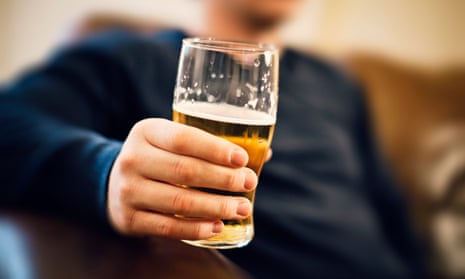barryqwalsh
Gold Member
- Sep 30, 2014
- 3,397
- 250
- 140

Men have been advised to drink no more than seven pints of beer a week – the same as the maximum limit for women – in the first new drinking guidelines to be released by the UK’s chief medical officers for 20 years.
They also advise there is no safe level of drinking for either sex, and issued a stark warning that any amount of alcohol consumption increases the risk ofdeveloping a range of cancers, particularly breast cancer.
Men's recommended weekly alcohol limit cut to 14 units



